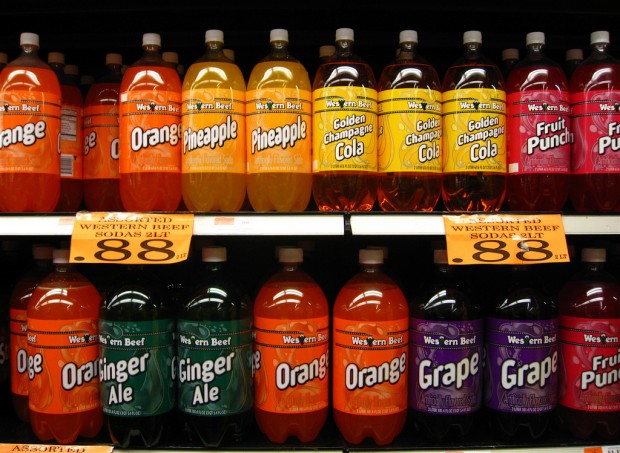
For the first time since 2009, legislation proposing a national tax on soda and other sugar-sweetened beverages is under consideration in the House of Representatives. U.S. Rep. Rosa DeLauro (D-CT) introduced the Sugar-Sweetened Beverages Tax Act -- or SWEET Act -- on Wednesday.
The bill would levy an excise tax on sugar content in beverages. This is different from the taxes proposed in San Francisco and Berkeley, which would levy a tax per-ounce of sugar-sweetened beverage.
Under the SWEET Act, manufacturers would pay a tax of one cent per teaspoon of sugar or other sweetener added to most beverages. For point of reference, a 20-ounce soda contains 16 teaspoons of sugar. The tax works out to just under a penny-per-ounce of beverage. Drinks such as milk, infant formula, alcoholic beverages and many juices are excluded.
But because the tax is based on amount of sugar and not on ounces of beverage, the federal approach is "a built-in incentive for manufacturers to diminish the concentration of sugar," says Dr. Lynn Silver with Oakland's Public Health Institute. Silver and other PHI staff gave input to DeLauro's staff in formulating the bill and also has been part of the Berkeley coalition that helped draft the measure there.
She said the national approach is different from local efforts, because a graduated tax is "more complicated" to implement at the local level. "It makes more sense at the federal level which has the resources to track down all the beverages and figure out how much they should be taxed," Silver said. "But for smaller communities, that would be challenging."